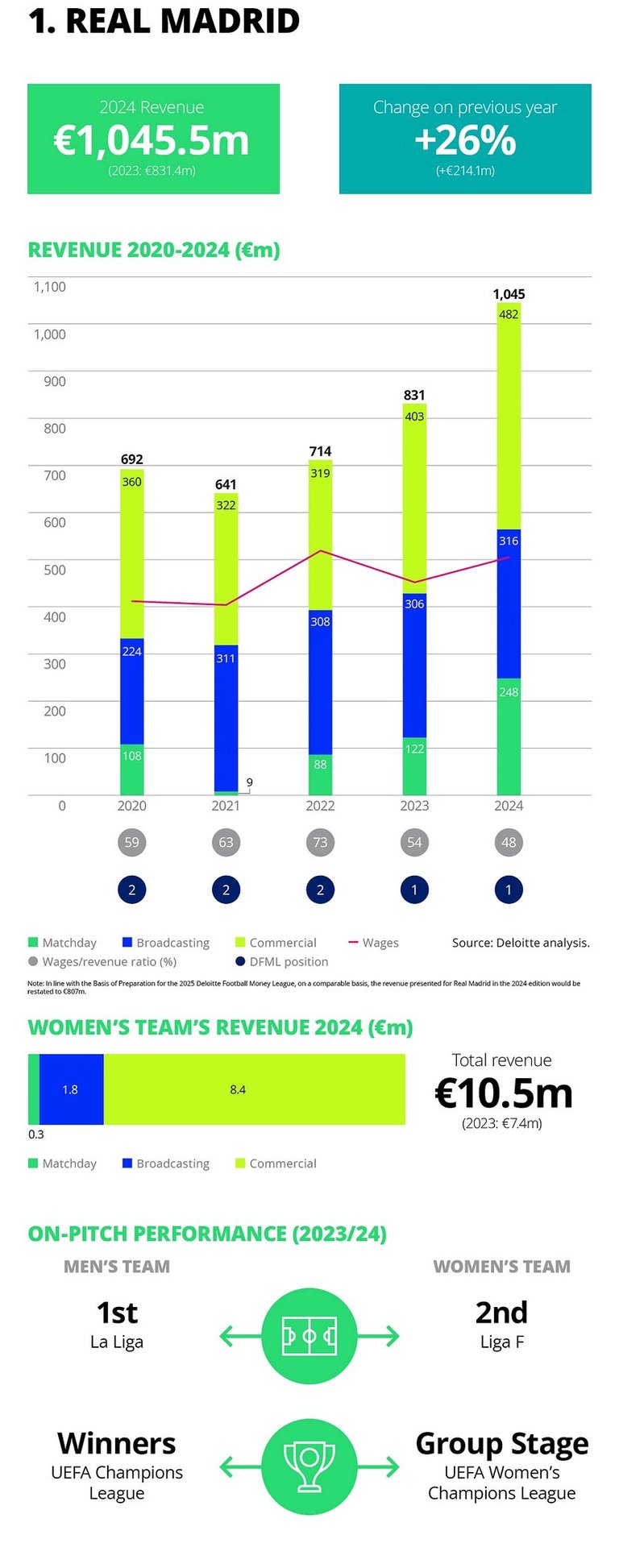Real Madrid FC: The Biggest Club in Football History and Its Revenue Management Strategies
The biggest sporting titan in football industry Real Madrid Fc how it managed to grab over a revenue of 1 billion in footballing industry how its different from its competitors in business space.
CASE STUDIES
Arjun Vinod
2/23/20255 min read


The Footballing Titan
Real Madrid FC, established in 1902, stands as a gargantuan entity in the world of football, revered not only for its sporting prowess but also for its astounding financial acumen. The club has etched its name into the annals of football history, securing an impressive array of titles, including more than 14 UEFA Champions League and 35 La Liga championships. With a rich heritage and an unwavering commitment to excellence, Real Madrid has cultivated a legacy that transcends mere statistical success; it is a beacon of passion and loyalty among its global fanbase.
The allure of Real Madrid goes beyond its trophy cabinet. The club's influence and reach extend into almost every corner of the globe, boasting millions of followers who are fervently dedicated to the team's journey. This extensive support base not only enhances the club's brand value but also contributes significantly to its revenue streams. The club has adeptly positioned itself as a top-tier sports franchise, leading its peers in various financial metrics, which underscores its status as a titan in the footballing landscape.
A key factor in Real Madrid's sustained success is its ability to balance competitive performance with strategic revenue management. The club has consistently embraced innovative approaches to maximize its financial potential, from lucrative sponsorship deals to merchandising strategies that resonate with fans worldwide. Through meticulous planning and execution in both its athletic and business operations, Real Madrid has solidified its reputation as not only a sporting powerhouse but also a leader in sports economics. This blend of on-field glory and astute financial strategies sets the stage for an in-depth exploration of how Real Madrid operates as a quintessential example of success in football history.
Revenue Streams: Analyzing the Financial Breakdown
Real Madrid FC, often regarded as the most successful football club in history, boasts an impressive revenue exceeding one billion dollars annually. This remarkable financial achievement is driven by multiple revenue streams, each contributing significantly to the club's overall income. Key revenue components include ticket sales, broadcasting rights, commercial partnerships, and merchandising, which collectively enable Real Madrid to maintain its status as a powerhouse in the footballing world.
Ticket sales represent a crucial revenue stream for Real Madrid, generating significant income from matchday attendance at the Santiago Bernabéu Stadium. With a seating capacity of over 81,000, the club benefits from an ardent fan base willing to support their team for home games. The pricing strategy and premium experience offered during matches lead to steady ticket sales, further contributing to overall revenues.
Broadcasting rights account for a substantial portion of revenue, as Real Madrid is part of various domestic and international leagues, the most notable being La Liga and the UEFA Champions League. The lucrative television deals that these competitions secure amplify the club's financial inflow, reflecting the increasing global interest in football. Consequently, the broadcasting revenue has become a cornerstone of Real Madrid's financial strategy, allowing for investments in players and infrastructure.
Commercial partnerships play an equally pivotal role in the club's revenue structure. Real Madrid has formed alliances with prominent brands worldwide, leveraging its global brand presence to negotiate favorable sponsorship deals. These collaborations not only enhance brand visibility for partners but also enrich the club financially. Additionally, merchandising serves as an essential revenue stream, with the sale of jerseys, apparel, and memorabilia catering to a vast worldwide audience, further showcasing the club's popularity.
As the football market evolves, Real Madrid's revenue streams have witnessed fluctuations influenced by various factors, including competitive performance, market demand, and global economic conditions. Nonetheless, the club's diversified approach to revenue generation has ensured its sustainability and ongoing success.
Real Madrid became the first football club to generate over €1 billion in revenue during the 2023/24 season and are at the top of the 2025 Money League. The completion of renovations works to the Bernabéu Stadium catalyzed the growth of matchday revenues to €248m in 2023/24, a 103% uplift on the previous year. The increase was realized predominantly on account of the marketing of Personal Seat Licenses, which provided an uplift of c.€76m, as well as the sale of new VIP seats and the increased capacity of the stadium from December 2023. The club also reported a 20% increase in commercial revenue (from €403m to €482m), boosted by increased merchandise and new sleeve sponsorship.


The Role of Global Brand Development
Real Madrid FC is a paragon of successful global brand development in the sports industry. The club has effectively utilized its historical prestige and on-field success to cultivate a powerful global brand, which has significantly contributed to its revenue management strategies. By leveraging its rich heritage, which dates back to its founding in 1902, Real Madrid has positioned itself not just as a football club, but as a symbol of excellence and passion that resonates with millions worldwide.
The marketing strategies employed by Real Madrid are pivotal in establishing and enhancing its global brand. The club hosts numerous international tours and friendly matches, allowing it to connect with fans across different continents. These events serve not only as a platform for showcasing its football talent but also as opportunities to engage with supporters. By holding training camps and community events in key markets, Real Madrid fosters loyalty among its fan base, which ultimately contributes to merchandise sales and brand visibility.
Moreover, partnerships with global corporations have played a crucial role in expanding Real Madrid’s reach. By collaborating with major brands across various industries, the club has been able to tap into new markets and demographics. These sponsorship deals often go beyond a mere financial exchange; they involve co-branded promotions and joint marketing initiatives that enhance the overall fan experience. Such partnerships not only boost the club’s revenue streams but also reinforce its brand association with quality and prestige.
Real Madrid's ability to seamlessly integrate its storied history with modern marketing initiatives has solidified its status as a leading global sports brand. By continually evolving its engagement strategies and enhancing its brand offerings, the club exemplifies how football organizations can successfully navigate the complexities of global brand development while driving substantial revenue growth.
Future Strategies for Sustained Financial Success
As Real Madrid FC positions itself for sustained financial growth in a rapidly evolving sports landscape, the club is focusing on several key strategies that promise to enhance its revenue streams. One of the primary areas of investment is in youth academies. By nurturing homegrown talent, Real Madrid not only strengthens its competitive squad but also increases potential transfer revenues. The success of players developed through these academies can significantly contribute to the club's overall financial health, creating a virtuous cycle of investment and returns.
In addition to academy investments, Real Madrid is keenly aware of the importance of digital innovation. In today’s digital-first world, enhancing online engagement has become paramount. The club has been investing in a robust digital infrastructure that enables them to connect with global fans through various platforms. This engagement leads to increased merchandise sales, subscription services, and enhanced matchday experiences. As technology continues to advance, Real Madrid aims to leverage advancements such as virtual reality and augmented reality, offering fans unique experiences that further expand its digital footprint.
Furthermore, the expansion of Real Madrid’s global reach is central to its future financial strategies. The club is actively exploring opportunities in emerging markets where football is gaining traction. By establishing partnerships and hosting exhibitions in regions like Asia and North America, Real Madrid not only bolsters its brand presence but also creates new revenue opportunities through merchandise sales and sponsorships. These international initiatives are crucial in ensuring that the club remains relevant in an increasingly competitive marketplace.
Finally, the financial implications of upcoming projects, particularly stadium renovations, cannot be overlooked. Enhancing the Santiago Bernabéu with modern facilities will not only improve matchday revenues but will also attract premium events, generating additional income streams. Collectively, these strategies underscore Real Madrid's commitment to maintaining its status as a leading force in football while securing long-term financial success.





